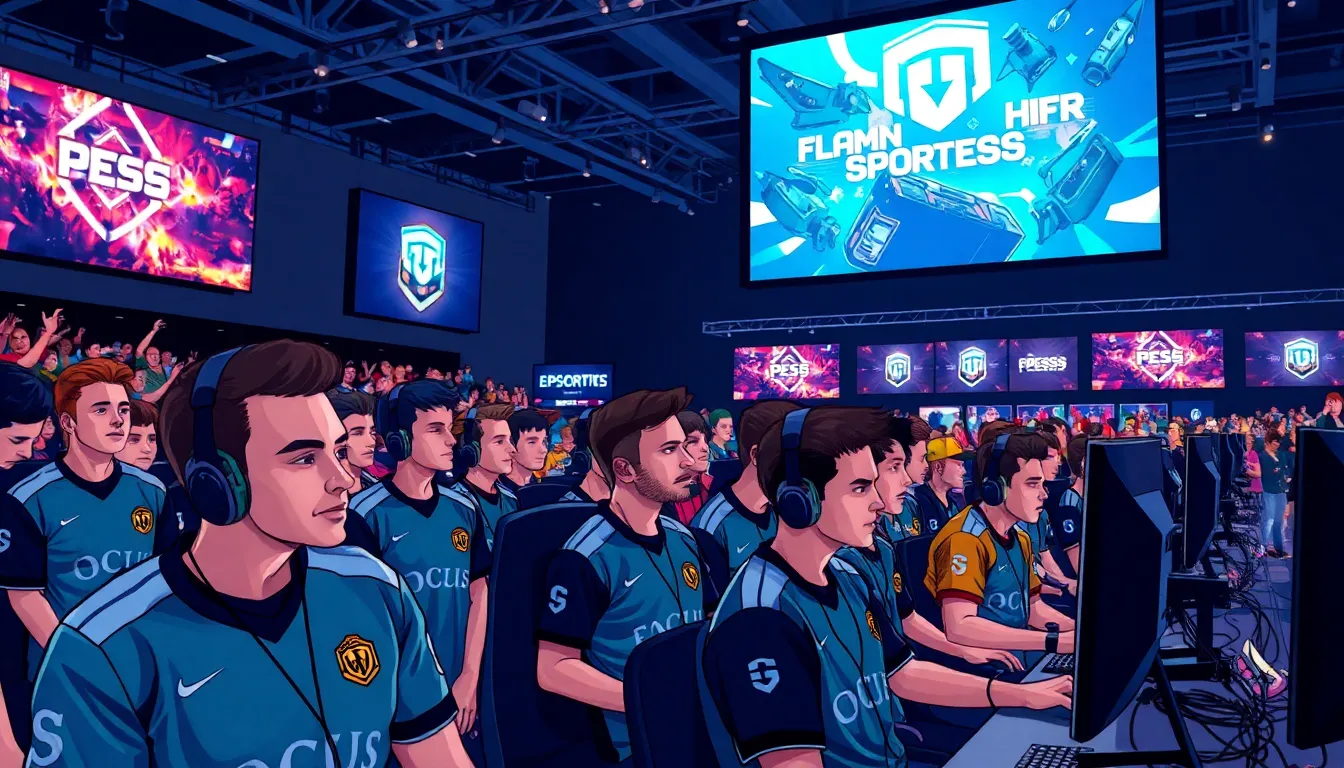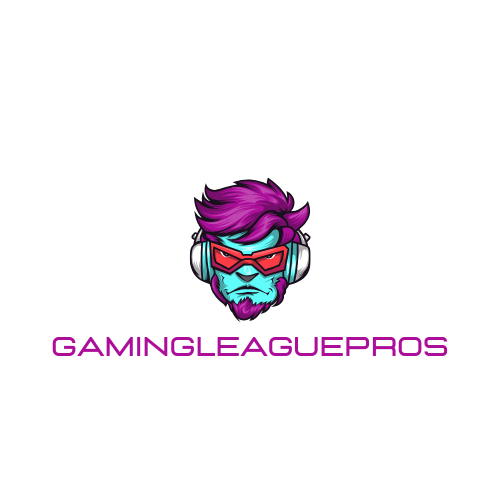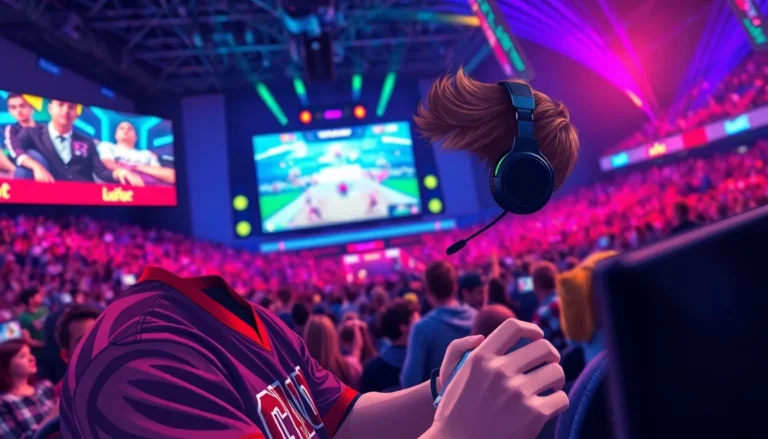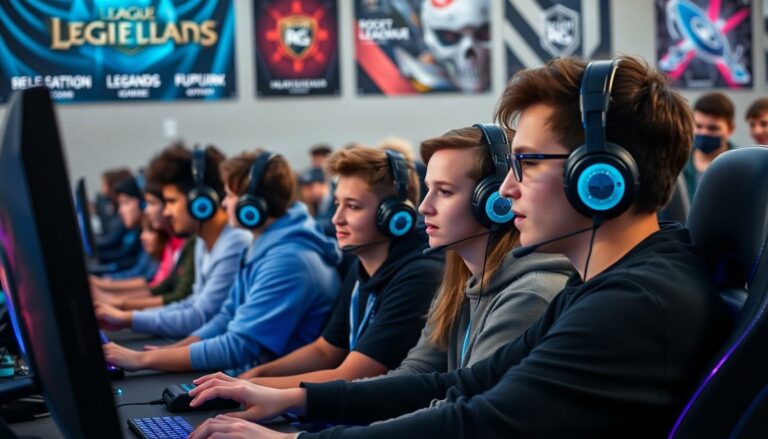In the fast-paced world of esports, partnerships are the secret sauce that can turn a good team into a great one. Picture this: brands and gamers teaming up like peanut butter and jelly, creating a delicious blend of excitement and revenue. As the esports scene continues to explode, companies are realizing that aligning with top-tier teams is more than just a trend—it’s a game-changer.
These collaborations aren’t just about slapping a logo on a jersey. They’re about crafting unforgettable experiences that resonate with fans and elevate brands. Whether it’s a flashy sponsorship deal or a quirky collaboration, the right partnership can spark a movement that keeps fans glued to their screens. Dive into the world of esports partnerships and discover how they’re reshaping the gaming landscape, one clever deal at a time.
Esports Partnerships
Esports partnerships involve strategic collaborations between brands and gaming organizations. These alliances generate unique experiences while maximizing brand exposure within the gaming community.
Definition of Esports Partnerships
Esports partnerships refer to formal agreements between brands and esports teams or events. These partnerships often include sponsorships, marketing campaigns, and co-branded initiatives. Brands collaborate with teams to leverage their audience, enhancing visibility in the competitive gaming space. Partnerships may also encompass merchandise collaborations or digital content creation, amplifying fan engagement.
Importance of Esports Partnerships
Esports partnerships play a crucial role in driving revenue growth for both brands and teams. Collaborations enhance the fan experience through unique promotions and events. They provide brands direct access to a young, engaged audience, improving customer loyalty. Increased brand visibility leads to higher sponsorship values and investment opportunities. Data from recent studies indicates that 90% of esports partnerships result in improved brand recall among gamers, illustrating the effectiveness of these strategic alliances.
Types of Esports Partnerships

Esports partnerships encompass various collaborative formats that amplify brand engagement and visibility within the gaming community. Key types include sponsorships and team collaborations.
Sponsorships and Advertising
Sponsorships play a crucial role in the esports ecosystem. They often manifest through brands providing financial support to gaming events, tournaments, or teams. Advertising strategies leverage this sponsorship, showcasing products directly to engaged audiences. Recognizing the potential, brands design campaigns that resonate with gamers. Companies gain significant exposure through in-game advertising or social media promotions. This type of partnership not only offers enhanced brand recall but has also shown a 90% effectiveness rate in connecting with the gaming demographic. Brands that invest in these strategies enjoy elevated visibility and increased customer loyalty.
Team and Organization Collaborations
Collaborations between brands and esports teams foster unique synergies. Organizations promote co-branded merchandise, which strengthens community ties. Teams benefit from partnerships that enhance their operational capabilities and brand equity. These alliances often lead to innovative initiatives that elevate both the team’s brand and the sponsoring company. Creative content creation, such as collaborative streaming events or exclusive fan experiences, emerges from these relationships. Investors and brands recognize the potential of tapping into the dedicated fan base. Such partnerships ultimately position both parties for greater success in the rapidly evolving esports landscape.
Benefits of Esports Partnerships
Esports partnerships offer significant advantages for brands, teams, and their audiences. These collaborations foster an environment that promotes growth and engagement while maximizing visibility.
Brand Exposure and Reach
Brands gain substantial exposure through esports partnerships. Direct connections with a young, engaged audience occur by sponsoring events or teams. Statistics show that 90% of partnerships enhance brand recall among gamers. This exposure reaches millions, creating opportunities for new customers. Collaboration with esports teams allows brands to use co-branded merchandise, which amplifies their presence. Partnering with popular leagues or tournaments results in elevated visibility for brands, ultimately driving more traffic and increasing sales.
Audience Engagement and Community Building
Audience engagement thrives through esports partnerships. Shared experiences are created via unique promotions and events, drawing fans and gamers together. This engagement fosters a strong sense of community, essential in the gaming world. Brands become integral to the gaming experience by supporting teams and events. Enhanced interactions lead to loyal fans who connect with brands on a personal level. Research indicates that collaboration in the esports ecosystem can significantly build community around brands, driving long-term loyalty and advocacy.
Challenges in Esports Partnerships
Esports partnerships face several challenges that can hinder their effectiveness. Market saturation and aligning brand values stand out as significant hurdles.
Market Saturation
Market saturation poses a major challenge for esports partnerships. Numerous brands compete for visibility within the esports landscape, making it difficult for any single partnership to stand out. As more companies invest in sponsorships, the sheer number of collaborations dilutes audience attention. One statistic reveals that nearly 40% of esports fans experience brand fatigue due to repeated exposure to similar marketing content. To differentiate themselves, brands must develop innovative strategies that capture audience interest. Unique promotions or tailored content can help brands break through the noise and retain gamer engagement.
Aligning Brand Values
Aligning brand values presents another obstacle for successful partnerships. Brands and esports teams often have distinct target demographics, making it critical to find common ground. Compatibility between brand messaging and audience expectations influences collaboration effectiveness. A disconnect in values can result in failed initiatives, alienating fans rather than fostering loyalty. Data shows that partnerships with a strong alignment in values see a 70% higher success rate in consumer engagement. It becomes essential for both parties to communicate openly, ensuring that campaigns resonate with their shared audience while reinforcing mutual goals.
Conclusion
Esports partnerships are transforming the gaming landscape by creating dynamic experiences that resonate with fans and brands alike. As the industry continues to expand these collaborations will play a pivotal role in driving engagement and revenue. By fostering authentic connections and aligning values brands can effectively tap into the passionate gaming community.
The potential for growth remains vast as innovative strategies emerge to combat market saturation. Ultimately the success of these partnerships hinges on their ability to create meaningful interactions that enhance the overall esports experience. As brands invest in this evolving space they’ll not only elevate their visibility but also cultivate lasting relationships with a dedicated audience.





